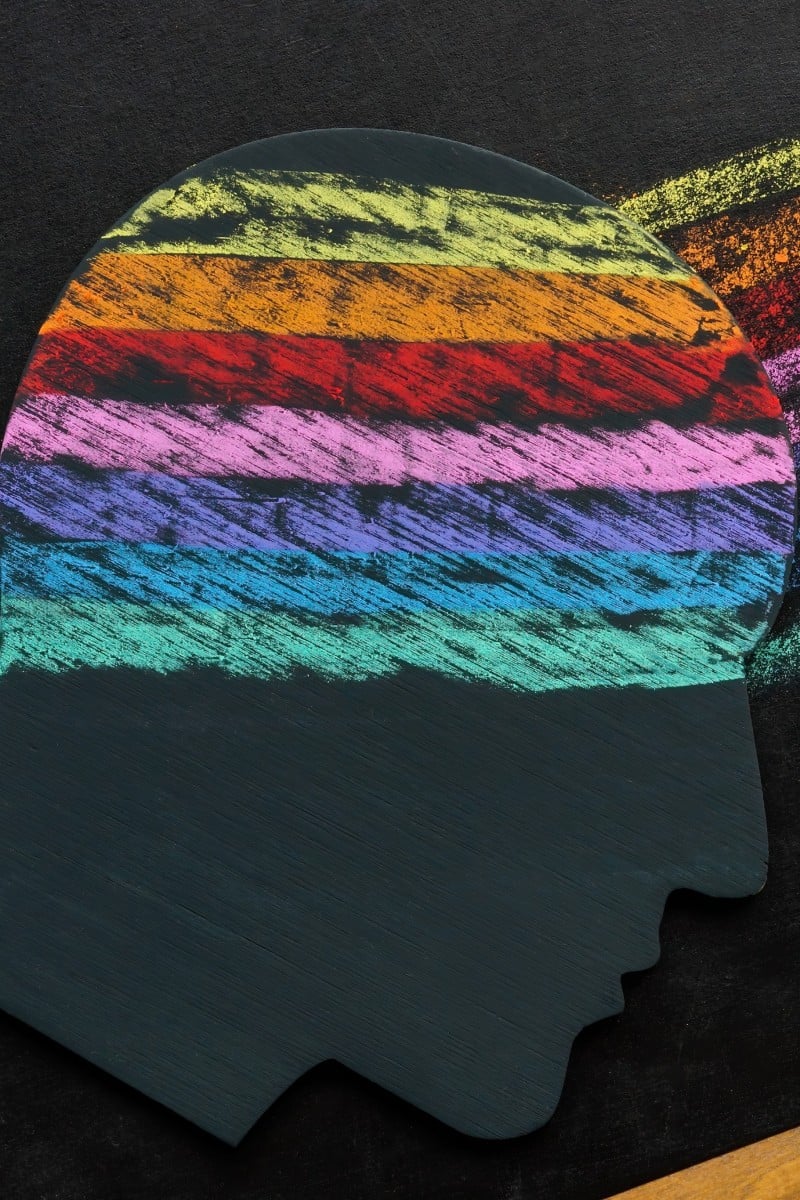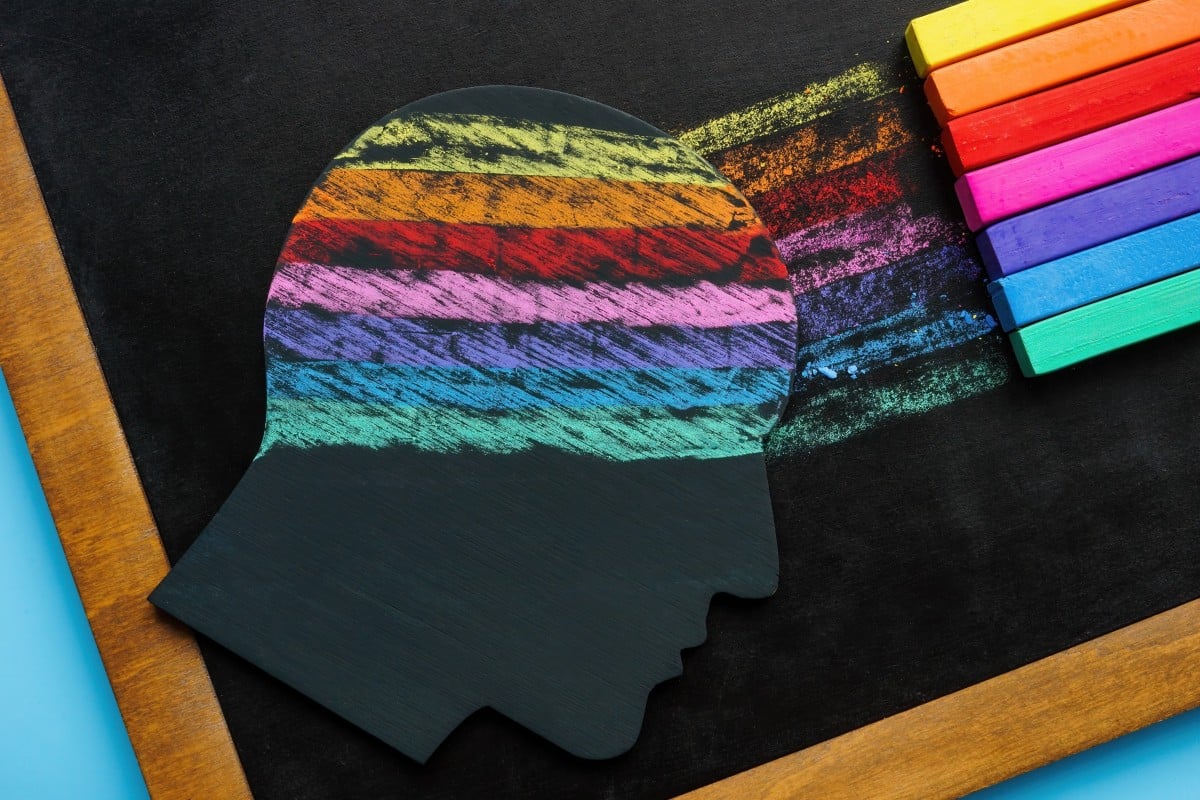
Neurodiversity Club at Hong Kong school highlights experiences of students with special education needs
- Pupils at Canadian International School have organised workshops, volunteer opportunities and even a silent disco to raise awareness of those with ADHD, autism
- Every week, Talking Points gives you a worksheet to practise your reading comprehension with exercises about the story we’ve written
 People often use the term “neurodiversity” to recognise the unique strengths and abilities of neurodivergent individuals. Photo: Shutterstock
People often use the term “neurodiversity” to recognise the unique strengths and abilities of neurodivergent individuals. Photo: ShutterstockThough most students struggled to cope with online learning during the pandemic, 15-year-old Ava Chan knew access to education was even more challenging for pupils with special educational needs (SEN).
Her twin brother is autistic, and he was the reason Ava started the Neurodiversity Club at her school, the Canadian International School of Hong Kong (CDNIS).
“My brother has autism, so I’ve been able to get a lot of exposure to the neurodiverse community and learned to appreciate and understand it’s another part of human diversity,” the Grade 10 student shared.
In 2021, Ava and her classmate Martin Poon, 16, launched the club to educate others about what it means to be neurodiverse. They advocate for equitable educational opportunities for SEN students through assemblies, workshops and volunteer opportunities.
A Hong Kong family shares their experiences with ADHD
“Neurodivergent” is a non-medical term that refers to autistic individuals, people with attention deficit hyperactivity disorder (ADHD), or anyone else whose brains develop or work differently. People often use the term “neurodiversity” to recognise the unique strengths and abilities of neurodivergent individuals.
The club at CDNIS has about 25 members, some of whom are neurodivergent.
“Since we’re a club that focuses on inclusion, we want to make sure everyone feels included,” Ava said, adding that neurodivergent members said the club had given them more confidence to discuss this topic.
The city’s neurodivergent students
In Hong Kong, neurodivergent pupils are generally referred to as SEN students. The phrase applies to those with difficulties or disabilities – including dyslexia, ADHD, autism, and visual and hearing impairment – that could make it harder for them to learn.
In the 2021-22 academic year, the city had 58,890 SEN students in public sector primary and secondary ordinary schools.
But even as in-person classes have resumed, this group of pupils faces another challenge: the loss of qualified teachers.
Amid the city’s emigration wave, about 6,500 teachers resigned or retired during the 2021-22 academic year, bringing the total to nearly 12,000 educators who have quit since 2021.
It is not clear how many of these teachers who left were trained to work with neurodivergent populations, but around 200 teachers from schools catering to SEN students quit in that same academic year. And in regular schools, only 40 per cent of teachers are qualified to work with SEN pupils.
Number of special needs ethnic minority students in Hong Kong underestimated: NGO
Education and advocacy
At CDNIS, Ava said she had spoken to school heads to see what the school was doing to be more inclusive for neurodiverse students, saying: “I think they’re starting to hire more teachers and staff that have experience in helping those with learning disabilities.”
In March, the club joined their school’s Sustainable Development Goals summit to educate others about neurodiversity. Their workshop used a simulation to help students understand the sensory overload that people with ADHD and autism often experience.
“We had a speaker playing different audio clips [of] everything we hear on a daily basis: people talking in the background, the teacher talking in the classroom, people writing down stuff. And all that happens at the same time, making it harder to block out noises,” explained Martin, who is in Grade 10.
The club is also making an impact outside CDNIS.
In February, they partnered with the Nesbitt Centre to assist in a barista training workshop for neurodivergent individuals at The Nest, a cafe in Jordan.
“It gave [SEN individuals] the opportunity to explore a passion,” Ava noted.
The social enterprise is run by The Nesbitt Centre, a charity that provides vocational training and jobs for neurodiverse people.
“They need something more flexible and accommodating because it will allow them to really give their input and utilise their skills,” Ava explained.
The CDNIS club also helped run a silent disco at The Harbour School’s Inclusivity Fair on Saturday. This is a dance party where music is played on wireless headphones instead of blasting over loudspeakers. This can help neurodivergent people avoid sensory overload.
In the coming school year, the Neurodiversity Club hopes to put on an SEN gala – a more inclusive version of prom that forgoes the loud music and strobing lights to create a more comfortable environment for everyone.
The organisers also hope to help other students establish their own chapters of the club.
“We’re working on a guidebook so people from other schools can start their own [neurodiversity] club,” Martin said. “Our goal is to raise awareness, educate and encourage inclusion.”
Use our printable worksheet or online interactive exercises to test your understanding of this story.
